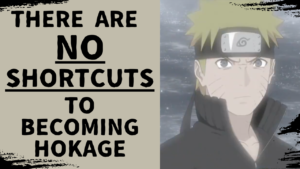Let’s learn Japanese with Erwin’s quote from Attack on Titan (進撃の巨人, Shingeki no Kyojin).
CONTENTS
Video
Erwin’s Quote
Japanese: 兵士よ、怒れ!兵士よ、叫べ!兵士よ、戦え!
Romaji: heishi yo, ikare! heishi yo, sakebe! heishi yo, tatakae!
English: My soldiers, rage! My soldiers, shout! My soldiers, fight!
Analysis
兵士よ
兵士 means “soldier”.
The particle よ following a noun is used when calling one’s name in a dramatic way. It’s a literary expression which is often used in songs, poems, prayers or classical stories so you hardly hear it in daily conversation.
In this scene he’s also trying to encourage everyone by addressing them as soldiers.
怒れ 叫べ 戦え
These are all the verbs in imperative form, used for giving strong commands.
怒(いか)れ is the imperative form of 怒(いか)る meaning “to rage”.
叫べ is the imperative form of 叫ぶ meaning “to shout”.
戦え is the imperative form of 戦う meaning “to fight”.
Japanese verbs are divided into three groups and all these verbs belong to Group 1.
Group 1 Verbs
The dictionary form of Group 1 verbs end with the vowel “u”. To make the imperative form, simply change the last vowel “u” to the vowel “e”.
Dictionary form
- 話す (hanasu) – “to speak”
- 聞く (kiku) – “to listen”
- 書く (kaku) – “to write”
- 読む (yomu) – “to read”
- 待つ (matsu) – “to wait”
Imperative form
- 話せ (hanase)
- 聞け (kike)
- 書け (kake)
- 読め (yome)
- 待て (mate)
Group 2 Verbs
The dictionary form of Group 2 verbs end with “eru” or “iru”. To make the imperative form, change the last vowel “u” to the vowel “o”.
Dictionary form
- 開ける (akeru) – “to open”
- 出る (deru) – “to exit”
- 寝る(neru) – “to sleep”
- 着る (kiru) – “to wear”
- 信じる (shinjiru) – “to believe”
Imperative form
- 開けろ (akero)
- 出ろ (dero)
- 寝ろ (nero)
- 着ろ (kiro)
- 信じろ (shinjiro)
Group 3 Verbs
There are only two verbs in Group 3. Their verb forms are irregular so you just have to remember each of them.
Dictionary form
- 来る (kuru) – “to come”
- する (suru) – “to do”
Imperative form
- 来い (koi)
- しろ (shiro)
Examples
Noun + よ (used to call one’s name in a dramatic way)
おお、心の友よ!待っていたぞ。
ō, kokoro no tomo yo! matte ita zo.
Oh, my confidant! I was waiting for you.
(Calling friends in a poetic way)
神よ、私たちの罪をお許しください。
kami yo, watashitachi no tsumi o oyurushi kudasai.
Our Lord, please forgive us our sins.
(Praying to God)
少年よ、大志を抱け。
shōnen yo, taishi o idake.
Boys, be ambitious.
(Famous historical quote of the American professor William Smith Clark)
Verb Imperative Form
Group 1 (the last vowel: “u” → “e”)
この薬を飲め。
kono kusuri o nome.
Take this medicine.
まっすぐ歩け。
massugu aruke.
Walk straight forward.
そこで止まれ。
soko de tomare.
Stop there.
Group 2 (the last vowel: “u” → “o”)
早く食べろ。
hayaku tabero.
Eat quickly.
おい、起きろ!
oi, okiro!
Hey, wake up!
俺を見ろ。
ore o miro.
Look at me.
Group 3 (irregular)
こっちに来い。
kocchi ni koi.
Come here.
黙って勉強しろ。
damatte benkyō shiro.
Shut up and study.
Difference between いかる & おこる (both written as 怒る)
いかる (to rage)
- literary expression
- the noun form (怒り) is often used
- extreme expression of anger
- uncontrollable anger
おこる (to get angry)
- colloquial expression
- only the verb form is used
- controllable anger
烈火のごとく怒った(いかった/おこった)。
rekka no gotoku ikatta/okotta.
I was furious like a raging flame.
もう、怒り(いかり/
おこり)がおさまらない!mō, ikari ga osamaranai!
Jeez, I can’t let go of my anger!
うちのお母さんはすぐ怒る(おこる/
いかる)。uchi no okāsan wa sugu okoru.
My mother gets angry easily.
Support Easy Peasy Japanesey
If you enjoy our content, please consider supporting Easy Peasy Japanesey. Your support will help keep us going. Thanks for all your support!



I think this website is a treasure for me and for people who want to study japanese and enjoy the process. Arigato!!!!
You are very welcome! Thanks for finding us. Hope you enjoy your studies through our website!